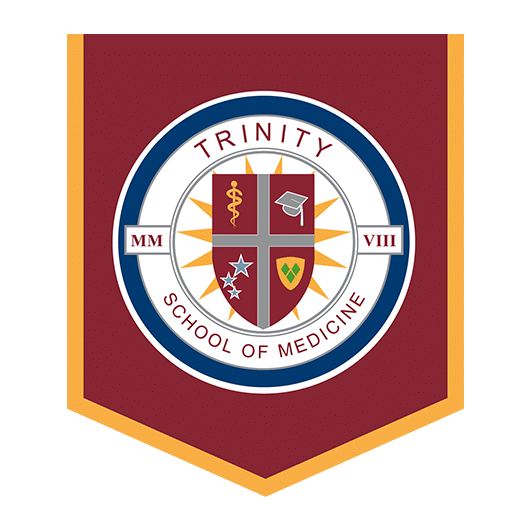This article has been updated to provide the greatest relevance & timeliness for our readers. It was originally published January 2019.
There are a lot of spectacular reasons to earn a master’s degree. From personal academic enrichment to general career planning, all the way down to specific job requirements, graduate degrees are a viable path to expertise and growth. A master’s degree is not, however, a requirement to practice medicine, nor even a recommendation. Despite this, they have become a begrudgingly common method for attempting to pad a GPA after a difficult US or Canadian medical school admissions process.
Before deciding if a master’s degree before medical school is right for you, ask yourself the following questions:
- What Are the Pre-Reqs for Med School?
- How Does Your Graduate School GPA Affect Your Medical School Prospects?
- What Are The Financial Implications of a Master’s Degree for Med School?
- What Do Med School Students & Alumni Think of Getting a Master’s Degree Before Medical School?
- Will a Master’s Degree Delay Your Medical Education & Career?
In this article, we’re going to look at the pros and cons of getting a master’s degree before medical school, dig into some data, talk to our students, and offer some insight into why it may not be what it’s cracked up to be and what other options may be out there for you.
1. What Are Your Personal and Professional Goals?
First, it’s worth re-emphasizing that if public health is your passion, or if you are driven by research opportunities, then obviously a relevant master’s degree in a scientific field you choose to pursue prior to earning a medical degree is valid and worthwhile.
Furthermore, in the US medical school application process, you are likely to stand out as someone pursuing a larger, more nuanced goal. What we are interrogating today are the chances of getting into medical school with a master’s degree.
That’s why today we want to look closely at the value, and potential consequences, of pursuing an advanced degree to boost a GPA or bolster a resume in an attempt to earn admission to a medical school, especially after already attempting one or more admissions cycles with US MD programs. The presumed benefit of earning a master’s degree prior to applying to a US medical program is a greater chance of acceptance. Unfortunately, the reality is far more complicated than that.
Above all else, your personal goals should dictate any higher education decision, as we said above, they should be at the center. That means if your goal is practicing medicine, diverting yourself to fit an arguably malfunctioning system might not be putting you and your goals at the center of your choices.
2. What Are the Pre-Reqs for Med School?
Most admission criteria across the US, Canada, and the Caribbean follow the same guidelines. You need an array of basic science coursework and technical aptitude that will prepare you for those first two years of labs and lectures in medical school, MCAT results, letters of recommendation, etc. And while a master’s degree could theoretically provide that coursework, it’s a high-risk approach (as we’ll get into), potentially negating the benefit of getting a master’s before medical school.
While there are one year master’s programs for medical school, typically called special master’s programs with a linkage to medical schools, first we want to address attempts to use additional education to boost a GPA and show an upward trend in academic skills and discipline.
3. How Does Your Graduate School GPA Affect Your Medical School Prospects?
The common consensus is that undergraduate GPA is weighed significantly more heavily than graduate GPA, as far as its positive impact on med school admission.
There is an exception to this weight, though, and unfortunately, it’s working against students. While good grades in a grad program have a blunted impact on your record in a positive direction, poor outcomes will be counted against you with the same rigor as a difficult undergraduate record. Put another way, from a GPA perspective, there are few of benefits and more of the same consequences for struggling.
4. What Are The Financial Implications of a Master’s Degree for Med School?
For those who don’t know, the lifetime borrowing limit is conceptually, a finite amount of loans available to someone to pursue their education. This limit is tiered depending on the type of school and how advanced the degree is. This is because higher education is a significant investment no matter the field or end goal, and traditionally, graduate school and professional school were parsed separately with their own limits.
However, based on the guidelines for US federal loans, the lifetime borrowing limit is accrued in graduate school out of the same “bucket” as medical school, a $138,500 pool of available borrowing. That $138,500 line in the sand cannot be breached with federal funds at all and can lead to additional difficulty in securing secondary private financing for medical students attending more expensive medical schools.
In short, financially, earning a master’s degree can actually jeopardize paying for medical education that students are trying to work their way into in the first place. It can and does leave students with the horror of running out of funds in the second or third year of a four-year degree, unable to complete it. We mentioned the tremendous value of a master’s degree a student is passionate about, but when it’s a means to an end, it’s worth asking: how is that degree going to feel if it becomes the final roadblock between you and your medical education?
5. What Do Med School Students & Alumni Think of Getting a Master’s Degree Before Medical School?
Medical student Nancy Thomas embodies the complexities at play in both long term career planning and strategic attempts to enhance her admission file. She earned an MPH and an MS before coming to Trinity. She had this to say, “Both degrees were to enhance my application but the second, my MPH, was borne out of interest in the field with plans to use the knowledge later on during my practice. I’m glad I earned my MPH degree but in some ways, I regret the master’s in medical science because of the time, the cost, and the uncertainty. Deciding to retake science courses at a local college would have saved me money as well as better prepared me for the MCAT. I met with the admission counselor at a medical college who basically agreed that my MCAT scores were the only thing weighing me down. If I knew of Trinity earlier, I would have definitely enrolled sooner, but still taken time off to earn my MPH.”
This brings us to master’s programs to get into medical school, often called “special master’s programs.” The best SMPs for medical school (sometimes tautologically called “SMP programs”). SMPs are a viable and valid approach, and almost an exception to this rule, as they’re direct “feeders” into MD programs. However, they are high stakes, high-cost, high-risk paths. Grade minimums for promotion in this program are a hard 3.65 and climbing, and if you are not promoted you have a master’s in medical science that will offer you no additional benefit in applying outside of that program’s feeder school after you are done.
We spoke with a Trinity alum and resident who tried this approach, Dr. Charelle Smith. Dr. Smith graduated Magna cum laude from her undergraduate program but enrolled in a master’s program to improve her odds with admission to US medical schools.
“My goal was mainly to increase my MCAT scores. My GPA was already great, but I had a lot of test-taking anxiety, and back then, I wasn’t what you’d call amazing at applying my knowledge to a standardized testing format. I entered Drexel’s post-baccalaureate program, an interesting approach that could transition either into medical school or move you into a master’s in the medical science program. I sat through a lot of classes I’d already taken before and did well as a refresher, ready to go after the next application cycle.
Ultimately my performance didn’t live up to my own standards, and the next step for that master’s degree was going to involve a major financial investment and moving to another city. Neither of those was my ultimate goal. I wanted to go to medical school. I did improve my MCAT scores by quite a bit when I retook them (a 6-point jump on the old model), but I ultimately went home and resumed work as a teacher. It just wasn’t worth it. Later, of course, I found Trinity and I’m now in my residency, so it worked out. Honestly, if I’d known about Trinity’s pre-med [5 year] program back then, I would have gone directly into that and saved quite a bit of time and money.”
6. Will a Master’s Degree Delay Your Medical Education & Career?
Another element both Ms. Thomas and Dr. Smith mention, programs abroad in the Caribbean, especially those with a 5-year option like Trinity are a major time saver when your passion is medicine. Another Trinity graduate, Dr. Drew Clare, attending physician at Johns Hopkins, said something similar when we spoke to him when asked what he’d do differently:
“I would have gone to Trinity a year earlier, because staying up here and doing a year of grad school was a huge waste of time and money, I could have been doing what I wanted to do all along. That is the one thing that I would have changed.”
In Summary
A master’s degree is an investment in time and energy as well as money. Any decision to pursue an additional degree should be made seriously and not as a means to an end but as a part of the larger whole of who you are and where your career will take you.
Going directly to a medical program that will look at the big picture and evaluate your full potential and not eliminate you because of a bump in the academic road is a better financial investment, a better use of a students’ time, and gets you closer to your dream: becoming a physician.


